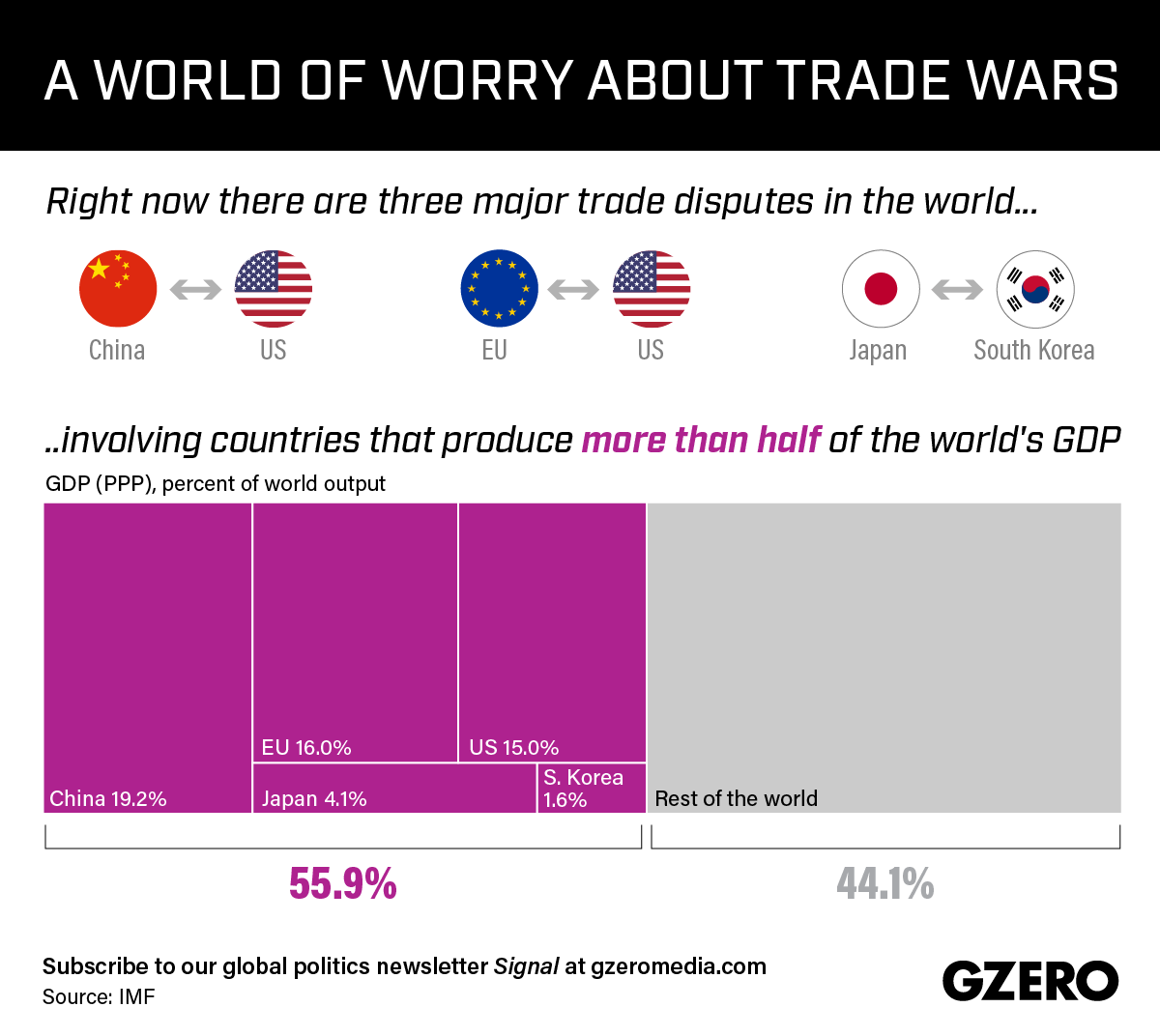These Three Disputes Affect More Than Half of the World Economy
One reason for the recent jitters about the global economy is that several of the world's leading economic powers are locked in deepening trade disputes. In fact, add them all up and you'll find that three big spats alone involve countries that account for more than half of global economic output. Here's a closer look at who's arguing over what:
US vs China: The world's two largest economies are locked in an escalating trade war. The Trump administration wants China to ease American firms' access to the Chinese market and to scale back its plans to dominate the tech sector. Beijing is willing to talk about tariffs and market access but wont undo the core of its state-backed economic model. More than half a trillion dollars worth of goods are affected by current or planned tariffs: here's a look at where things stand right now.
US vs Europe: Washington has already put tariffs on European metals, to which Brussels responded with levies on US jeans, whiskey, and motorcycles (the mid-life crisis economy!) Trump has threatened debilitating tariffs on European automakers in a broader dispute over Europe's state backing for the aerospace and farming industries, and European misgivings about US digital privacy regulations.
South Korea vs Japan: A dispute over the legacy of Japan's 20th century occupation of Korea spilled into trade, with Tokyo imposing export restrictions that hurt Seoul's lucrative tech industry. There is little sign that this dispute will ease: just last week South Korea cut intelligence sharing with Tokyo.
